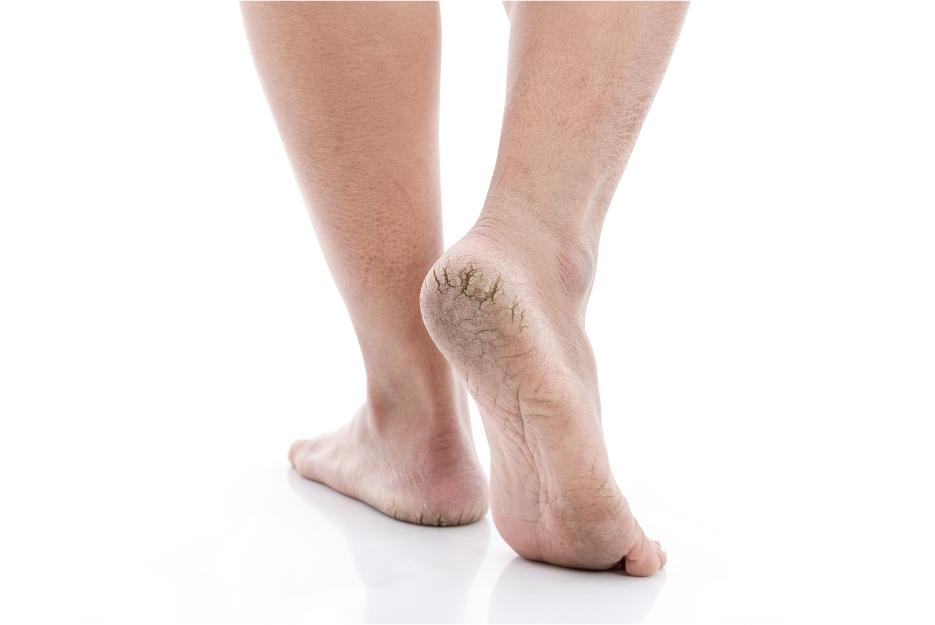Cracked Heels Treatment
Cracked Heels

Table of Contents
What Causes Cracked Heels?
- Spending long periods on your feet
- Wearing hard, unsupportive footwear such as thongs, open-backed sandals, or going barefoot
- Biomechanical issues that increase pressure on the heels
- Taking long, hot showers
- Increased body weight
- Medical conditions like diabetes
Since high heels are often worn with open-back shoes during warmer weather, cracked heels are a common issue during the summer months.
Cracked Heel Symptoms
Visit Us Today
Hope Island
Phone: 07 5510 9222
Located within Hope Island Marketplace Medical & Skin Clinic, 99-103 Broadwater Ave Hope Island QLD 4212
Jimboomba
Phone: 07 5546 9766
Located Within Jimboomba Medical Centre, Unit 1/69 Cerina Cct, Jimboomba QLD 4280
Beenleigh
Phone: 07 3287 2224
Located Within Beenleigh Mall Medical Centre, Shop24A, 40/68 Main Street, Beenleigh QLD 4207
Eagleby
Phone: 07 2889 1666
Located Within Eagleby Family Practice, 5/120 River Hills Rd, Eagleby QLD 4207
Harristown
Phone: 07 4635 6111
Located Within Toowoomba Medical Centre, 146 Drayton Road, Harristown QLD 4350
Marsden
Phone: 07 3067 2370
Located Within Marsden Family Doctors, Shop 28/55-77 Chambers Flat Rd, Marsden QLD 4132
Keperra
Phone: 07 3355 4082
Located Within Keperra Medical Clinic, 14 Dallas Parade Keperra QLD 4054
Coomera
Phone: 07 5573 5663
Located Within Doctors @ Coomera Central, Shop 6, 21 Coomera Grand Drive, Upper Coomera, QLD 4209
Newtown
Phone: 07 4633 8700
Located Within Ochre Medical Centre Wyalla, Shop 20, 238 Taylor Street, Newtown QLD 4350
Cracked Heels Treatment
Cracked heel treatment begins with removing the hard, dry skin, addressing any underlying issues or infections, and taking steps to prevent future occurrences.
At Priority Podiatry Clinic, we can safely reduce the thickness of your calluses to a more manageable level. We will assess your heels for any underlying conditions or signs of infection, using dressings as necessary. Our team will also help identify the factors contributing to your calluses and cracked heels, and develop a tailored management plan to reduce the chances of the problem returning.
Our Top Tips On How To Prevent Cracked Heels
When you notice callus building up on your heels, it’s important to see your podiatrist for safe removal.
Here are some steps to help prevent cracked heels:
- Moisturize your feet daily with a urea-based cream to keep the skin soft and supple, but avoid the areas between the toes.
- Select proper footwear that doesn’t encourage callus or dry skin buildup. Avoid prolonged use of thongs or walking barefoot, and opt for sandals with enclosed heels when possible.
- Wear socks or stockings to protect your feet.
- Stay hydrated and include essential fatty acids, like Omega-3 fatty acids, in your diet to help maintain skin hydration and elasticity, preventing dryness and cracking.
- Exercise regularly to improve circulation, which helps heal cracks and reduces the risk of them returning.
If your condition is related to nutritional or medical disorders, a referral to other health professionals may be necessary. Your Priority Podiatry Clinic podiatrist can guide you through this process when appropriate.
Enquire Now
Cracked Heels FAQ
How To Fix Cracked Heels
The best way to fix cracked heels is to make an appointment with your podiatrist so they can remove the dry, hard skin from your heel. Then they will be able to assess the area and treat any underlying problems or infections. They will then be able to recommend proactive measures to help reduce the chance of recurrence.
How To Soften Cracked Heels
The most effective way to treat cracked heels is to see your podiatrist for a formal assessment of any underlying problems or infections. However, for short term relief you can soften the skin on your cracked heels by using a thick moisturiser or urea cream. It may also provide relief to soak your feet in a foot bath with lukewarm, soapy water for 20 minutes.
Dp Cracked Heels Hurt?
When only the outer layer of skin is affected, you may not feel much pain, although the cracks can cause discomfort as they catch on your socks. However, if the cracks go deeper and affect the healthy skin beneath, cracked heels can become painful, lead to bleeding, and, if left untreated, increase the risk of infection.
Do Podiatrists Treat Cracked Heels?
Make an appointment with Priority Podiatry Clinic for effective cracked heel treatment.
Not The Condition You Are Looking For?
Find out more about the conditions we treat by clicking below.
